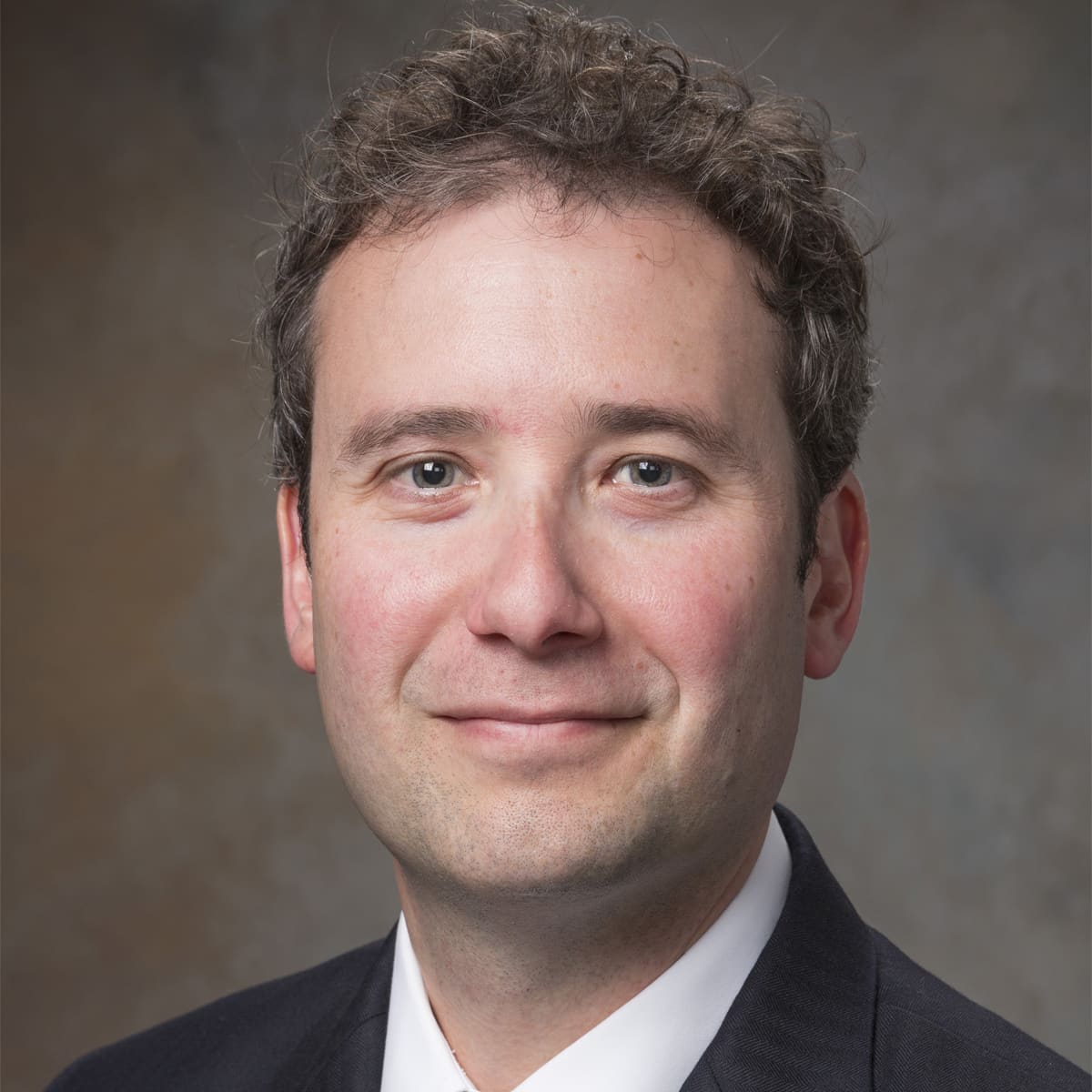Transient Ischemic Attack (TIA)
Definition
A transient ischemic attack (TIA) is a temporary episode of neurological dysfunction caused by a brief interruption of blood flow to the brain. It is often referred to as a 'mini-stroke' and can serve as a warning sign for an impending stroke. Unlike a stroke, a TIA does not cause permanent brain damage or lasting neurological deficits.
Related Specialists
Showing 3 of 33
Related Fact Sheets
Related Departments
Showing 3 of 6
Stroke Center
Timely treatment is essential to maximizing quality of life after a stroke. At the Yale Stroke Center, our highly skilled physicians take pride in delivering safe, patient-centered, and efficient care. We provide emergency treatments for conditions such as acute stroke and brain bleeds, where immediate interventions are required, but also elective treatments for aneurysms and other vascular lesions that are discovered incidentally. A dedicated neurovascular surgeon is on call and ready to mobilize a team at a moment’s notice—24 hours a day, 7 days a week. We streamline access to emergency neurovascular care for referring physicians, guaranteeing that patients will receive the timeliest and best care anywhere. Our collaborative team includes neurologists, neurosurgeons, and neuroradiologists, as well as physical medicine and rehabilitation specialists, working together to deliver cutting-edge interventional treatment and imaging. In the emergency department, radiologists are always available to provide readings of imaging scans so that patients can proceed as quickly as possible to treatment. We have an array of 3-D imaging workstations to ensure doctors can pinpoint where they need to concentrate care. We work closely with Yale New Haven Hospital’s emergency medical service and emergency department teams to rapidly diagnose and treat acute stroke and other cerebrovascular disorders 24 hours a day. Our Y Access Line allows for the quick and easy transfer of patients to Yale New Haven Hospital. We also offer SkyHealth, an emergency patient transport helicopter, staffed by highly skilled medical professionals, including a critical care flight nurse and a trained paramedic. Life-saving interventions are delivered en route, for the best possible clinical outcomes. Our state-of-the-art, VISIUS Surgical Theater is equipped with a powerful MRI and an integrated, bi-plane X-ray angiography system that allows our experts to better visualize arteries and vessels. The ability to receive preoperative diagnostic imaging; open micro-surgery; percutaneous, catheter-based endovascular treatments; and postoperative checks all in the same room is unique in the tri-state area. Our services include: A dedicated neurointensive care unit A stroke consult service with a patient- and family-centered approach to the treatment and rehabilitation of patients with cerebrovascular disease Specialized stroke clinics for community physician referrals, stroke consults, and primary and secondary stroke prevention Telemedicine Program Through our Stroke Telemedicine Program, our neurologists use a video- and image-sharing telecommunications system to provide acute stroke care consultative services to outlying hospitals in the state. Yale New Haven Hospital is the only hospital in Connecticut to offer stroke telemedicine services. Within minutes of making an initial call to the Stroke Telemedicine Program, an on-call neurologist can examine a patient at the remote hospital to helStroke Telemedicine Program
For patients at other Connecticut hospitals who present with acute stroke symptoms, our Stroke Telemedicine Program allows local providers to consult with our neurologists via video- and image-sharing technology. Within minutes of making an initial call to the Stroke Telemedicine Program, the on-call neurologist can examine a patient at the remote hospital to help diagnose and make recommendations for treatment. Yale New Haven Hospital is the only hospital in Connecticut to offer stroke telemedicine services. Some patients who present with the opportunity for treatment with IV tPA may be transferred to Yale New Haven Hospital. tPA is the only FDA-approved treatment for strokes caused by blocked blood vessels, which account for the vast majority of them. Stroke telemedicine programs throughout the country have demonstrated that telemedicine conferencing between outlying hospitals and trained stroke neurologists can improve outcomes for stroke patients, enhancing the use of tPA at hospitals that do not have on-site neurologists 24/7.Neurology
Yale’s Department of Neurology has been at the forefront of cutting-edge clinical care and scientific discovery since it began in 1952. It was Yale scientists who discovered the genes that cause Multiple Sclerosis. Yale housed one of the first epilepsy monitoring units in the country, and one of the first stroke centers at its partner, the Veterans Affairs (VA) Center in West Haven. Today, our team of experienced doctors are committed to understanding and treating the entire spectrum of nervous system diseases. Expert physicians specialize in brain and nerve health for both children and adults. Specialized care is offered in the following areas: Amyotrophic lateral sclerosis (ALS), myasthenia gravis, peripheral neuropathy, neuromuscular disorders Alzheimer’s disease/cognitive disorders Epilepsy and neurophysiology General neurology, headache, pain Multiple sclerosis and neuroimmunology Neurodegenerative disorders Neurocritical care Neurological infections Neuro-oncology Parkinson’s disease and movement disorders Stroke and vascular neurology



